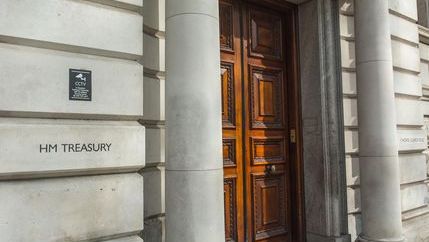
Currently, the AML/CTF supervisory system is made up of three statutory supervisors - the Financial Conduct Authority, the Gambling Commission and HMRC (who are responsible for supervising sales and letting agents, property auctioneers and high-value dealers) as well as 22 professional body supervisors (PBSs) who supervise the legal and accountancy sectors. These supervisors ensure firms and individuals comply with the Money Laundering Regulations (MLRs). They take enforcement action if the MLRs are breached and ensure only fit and competent individuals hold management roles in regulated businesses.
In the most recent peer assessment by the Financial Action Task Force, which is the global money laundering and terrorist financing watchdog, significant weaknesses and inconsistencies in the supervisory regime were identified which leave the UK vulnerable.
UK Government proposals
- OPBAS+ - the powers of the Office for Professional Body Anti-Money Laundering Supervision (OPBAS) would be strengthened, with the ambition of driving further improvements in the effectiveness of PBS supervision. The 22 PBSs would continue to supervise legal and accountancy sector firms for AML/CTF purposes. There would be no change to the remit of the existing statutory supervisors including HMRC.
- PBS Consolidation - have either two or six of the current 22 PBSs retain responsibility for AML/CTF supervision. Under two PBSs, there would be one PBS in the legal sector and one PBS in the accountancy sector with responsibility for AML/CTF supervision. Both of these organisations would have a UK-wide remit. However, they could have specialist divisions to account for differences in regime in Northern Ireland and Scotland as necessary. Under the proposals for six PBSs, there would be one PBS with responsibility for AML/CTF supervision for each of the accountancy and legal sectors in each of three jurisdictions: England and Wales, Scotland and Northern Ireland.
- Single Professional Services Supervisor - in the legal and accountancy sectors, all professional body supervisors would no longer be AML/CTF supervisors. One organisation (existing or new) would take responsibility for the AML/CTF supervision of all legal and accountancy sector firms. In addition to legal and accountancy sector firms, this organisation could potentially supervise Estate Agency Businesses and Letting Agency Businesses. Either HMRC could continue to supervise the remaining sectors it currently does, or these could also transfer to the Single Professional Services Supervisor.
- Single Anti Money Laundering Supervisor- All AML/CTF supervision would be done by one body, including the work currently done by the Financial Conduct Authority, the Gambling Commission, HMRC, and the PBSs. There would be no other AML/ CTF supervisors. OPBAS would be wound up.
Propertymark will submit a response on behalf of members but we also encourage individuals to share their views. You can read and respond to the consultation here.
Member compliance
It’s an offence to trade as an estate agent unless registered with HMRC for AML supervision. The Fifth Money Laundering Directive expanded the scope of regulated businesses for AML supervision within the property sector to include the letting agency sector but only for high-value transactions with a monthly rent of EUR 10,000 or more. The Directive also extended the rules to persons trading or acting as intermediaries in the trade of works of art, including when this is carried out by art galleries and auction houses, where the value of the transaction or a series of linked transactions amounts to EUR 10,000 or more.
Propertymark produces a range of resources, including training, factsheets and how-to guides to support members. Our Calm About Compliance service offers further reassurance with experienced agency auditors available to advise you 1:1 and help you avoid pitfalls that can lead to enforcement action.
Anti-money laundering (AML) training and resources
We have created a number of resources, forms and training options for agents and auctioneers to comply with their Anti-Money Laundering obligations.






